Clinical Handbook of
Chinese Medicine
Clinical Handbook of
Chinese Medicine

Bob Xu
American Chinese Medicine Association, USA
Chun-Su Yuan
University of Chicago, USA
 World Scientific
World Scientific
NEW JERSEY LONDON SINGAPORE BEIJING SHANGHAI HONG KONG TAIPEI CHENNAI
Published by
World Scientific Publishing Co. Pte. Ltd.
5 Toh Tuck Link, Singapore 596224
USA office: 27 Warren Street, Suite 401-402, Hackensack, NJ 07601
UK office: 57 Shelton Street, Covent Garden, London WC2H 9HE
Library of Congress Cataloging-in-Publication Data
Xu, Bob.
Clinical handbook of Chinese medicine / by Bob Xu, Chun-Su Yuan.
p. ; cm.
Includes bibliographical references and index.
ISBN 978-9814366120 (hardcover : alk. paper)
I. Yuan, Chun-Su. II. Title.
[DNLM: 1. Medicine, Chinese Traditional--Handbooks. WB 39]
610.951--dc23
2012046515
British Library Cataloguing-in-Publication Data
A catalogue record for this book is available from the British Library.
Copyright 2014 by World Scientific Publishing Co. Pte. Ltd.
All rights reserved. This book, or parts thereof, may not be reproduced in any form or by any means, electronic or mechanical, including photocopying, recording or any information storage and retrieval system now known or to be invented, without written permission from the publisher.
For photocopying of material in this volume, please pay a copying fee through the Copyright Clearance Center, Inc., 222 Rosewood Drive, Danvers, MA 01923, USA. In this case permission to photocopy is not required from the publisher.
Typeset by Stallion Press
Email:
Printed in Singapore
Disclaimer: Our knowledge of medicine is constantly changing as a result of new developments. The authors and publishers have taken every care to provide updated information compatible with standards at the time of publication, but cannot be responsible for any omissions or inadvertent errors, nor can they warrant that the work is accurate in every respect. The readers are advised to consult with their healthcare professionals before the use of any Chinese medicine therapies. This book is neither intended nor implied to be a substitute for professional Chinese medicine advice, and Chinese medicine should be prescribed by qualified Chinese medicine doctors or practitioners only. Otherwise, side effects or even death may occur.
Note to Readers and
How to Use this Book
Chinese medicine (CM) is an individualized medicine, very different from Western medicine (WM). CM herbs should be prescribed with the principle of bian zheng lun zhi, treating each patient individually, based on the patients specific diagnosed conditions. Thus, CM herbs cannot be used in the same way as WM drugs.
For this reason, all formulations in this book are strictly general examples. They should not be administered to patients without being prescribed from qualified CM doctors. It is erroneous to massively manufacture CM herbs as dietary supplements or medications. Allowing patients to take CM herbs in this manner may cause serious, adverse events. Numerous reports show instances of CM utilized incorrectly. For example, in the 1990s, many people suffered from kidney failure and other adverse events after taking Chinese herbs for weight loss. Approximately 10 years ago, a number of people died and thousands suffered side effects from using a CM herb, ephedra, as a dietary supplement. These incidents were caused by the intake of herbs without the prescription of CM qualified doctors or the incorrect use of CM. These events can be avoided if qualified CM doctors prescribe CM herbs based on the bain zheng lun zhi principle.
Due to historical reasons as well as language and cultural differences, many terms in CM do not have exact counterparts in English. Direct translation of these CM terms into English may distort or lose their original meanings. This English language expression poses a challenge to the authors. In order to obtain a correct interpretation and a good understanding of the text, the reader should be aware that there is a disjoint between CM terms and English terminology. To resolve this issue, three appendices have been provided at the end of this handbook.
Appendix I. Acupuncture Points Since acupuncture points do not have counterparts in English, we used pinyin forms, the official phonetic system for transcribing the sound of Chinese characters into Latin script. The meanings of pinyin forms are explained.
Appendix II. Glossary For all CM terms other than acupuncture points and herbal formulations, pinyin forms are used and explained.
Appendix III. Index of Formulae For herbal formulations that do not have exact counterparts in English, pinyin forms are used and explained.
Thus, whenever you meet a term that is unfamiliar in English, using appendices will be helpful. Frequent reference to these appendices is valuable to understand the meaning of CM terminologies.
Table of Contents

Chinese medicine (CM), also called traditional Chinese medicine (TCM), is an integral part of Chinese culture and history. It originated from, grows, develops, and evolves side by side with Chinese culture and history, and in return, Chinese medicine has enriched Chinese culture and history. Due to this close relationship, it is necessary to understand Chinese culture and history in order to understand Chinese medicine.

Generally speaking, Chinese medicine is composed of two parts: theory and practice. The practice of Chinese medicine is the basis and foundation of its theory. The theory of Chinese medicine is a summary and sublimation of the practice.
Medically, the theory and practice of Chinese medicine are closely related. However, during the course of the history of Chinese medicine, the two parts did not evolve side by side. The practice of Chinese medicine started much earlier than the formation of Chinese medical theory.
The origin of Chinese medical practice was closely associated with the activities of Chinese ancestors in the primitive era. During that era, the basic survival needs of human beings were not guaranteed.
Diseases, illnesses, wounds, etc., were constantly threatening the survival of Chinese ancestors. They faced these threats everyday. Basic survival was a huge challenge. In that hostile environment, they tried every possible means available to survive the diseases, illnesses, wounds, etc.
Because one of the most pressing tasks at that time was to fight the diseases, illnesses, wounds, etc., the need for a primitive medicine became evident. In other words, whenever there was a human being, there was a
As a result, the practice of Chinese medicine started at the very beginning of Chinese history. In fact, the practice of Chinese medicine began as soon as Chinese history began.
The earliest practice of Chinese medicine, however, was not as sophisticated and advanced as the practice of Chinese medicine today. The early practice of Chinese medicine was primarily composed of simple, random, and non-purposeful behaviors. Many of them could be described as subconscious, unintentional, trial-and-error, and non-systematic approaches.
Next page
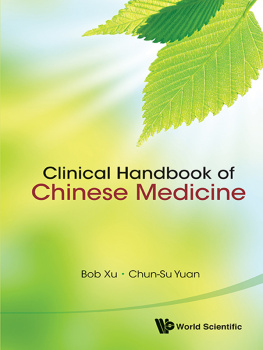
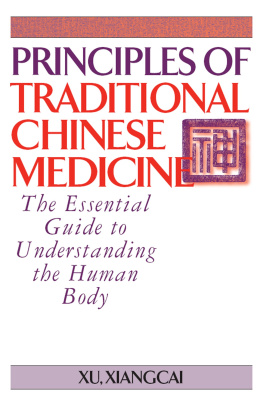

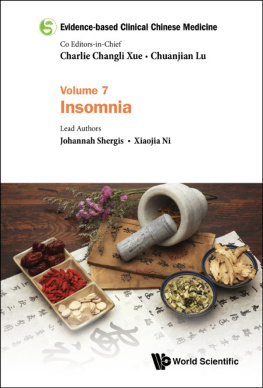
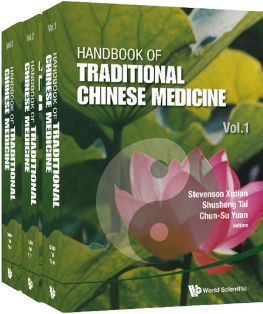
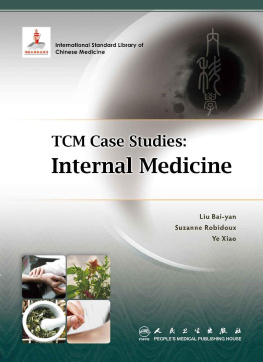
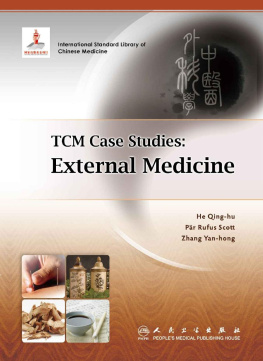
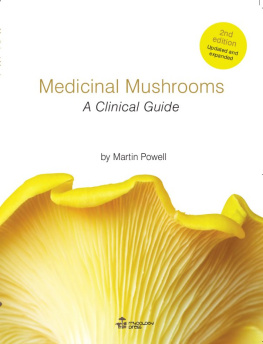
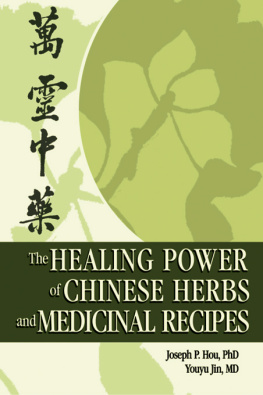

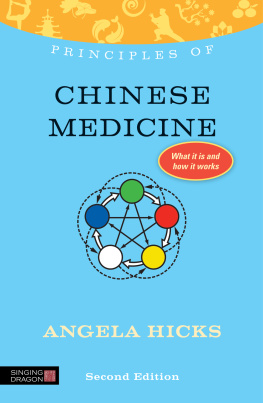

 World Scientific
World Scientific
